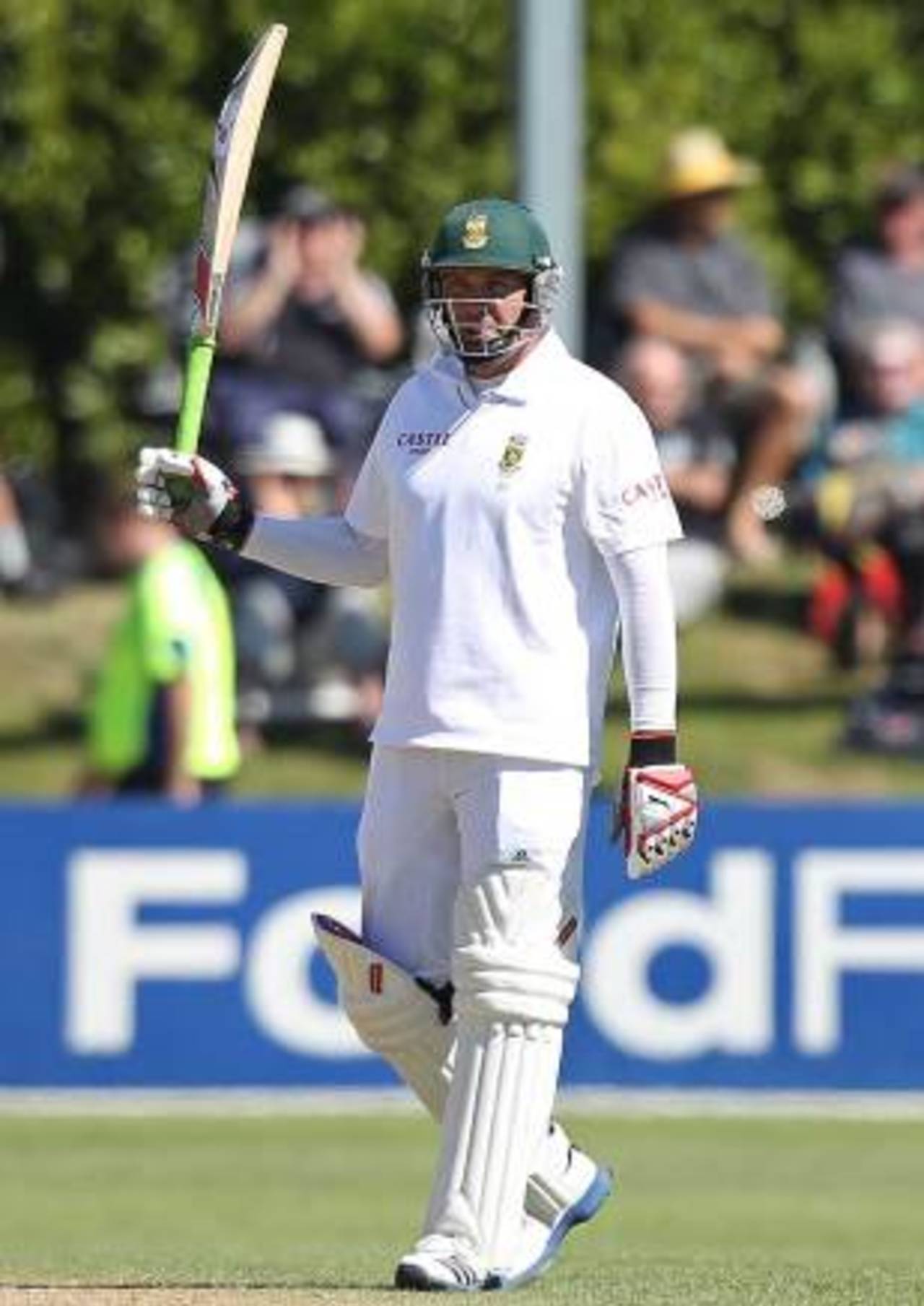The Decision Review System (DRS) will be in use for the remaining two Test matches between New Zealand and South Africa after a possible pull out from technology providers Virtual Eye was prevented on Sunday.
Ian Taylor, creator of Virtual Eye ball-tracking was so "disappointed" by
comments made by Jacques Kallis and Doug Bracewell at the end of the third day's play that he arrived at the ground on Sunday morning ready to withdraw his services. After a meeting with the ICC's general manager, Dave Richardson, New Zealand Cricket and Sky Television officials, Taylor was persuaded to stay on and will continue to supply ball-tracking for the rest of the series.
Both Kallis and Bracewell expressed concerns about one of the more talked about elements of the DRS system - ball-tracking technology. The pair said members of their teams were not entirely convinced of its accuracy.
Taylor, who founded Animated Research Ltd, the company that sells DRS services, including ball-tracking to Sky TV, said the criticism levelled at his product compelled him to cancel the service immediately. "My view was that let's draw a line in the sand. If the players feel the way that Jacques says they do, let's take the stance that we shouldn't be imposing our technology. We've put it there to help the players, and to hopefully get better decision making. If the players don't want it, I totally understand that, it shouldn't be imposed on them."
Taylor revealed that initially even he did not want to use it when DRS was first proposed. "We were opposed to using the technology for DRS. We didn't think a tool that was made for television should decide the results of matches," he said. "When DRS was proposed, the first thing we said was not to use the predictive path."
The eventual decision to use it was explained frankly by Richardson. "The bottom line is that they are going to be more consistent and more accurate than the human eye, that is just natural," he said. "So when Jacques Kallis says that 99% of the players don't support it, I don't think he's correct."
Kallis said that there were "plenty" of concerns about ball-tracking in the South African camp and indicated that players from all around the world were not convinced of how correct it can be. "I don't think there are any guys that are 100% sure that that thing is as accurate as they want to make it out to be. They keep saying it but I'm not so sure and I think 99% of cricketers will say that."
It was that statement which incensed Taylor, because he saw it as coming from a place of ignorance. "I just thought it was really unfortunate that somebody should go off in a press conference with those sort of comments when we have a standing invitation to come and have a look at the system," Taylor said, confirming that, to date, none of the players have accepted.
Richardson was in the country by coincidence on scheduled visits to New Zealand and Australia about technology and attended the morning's meeting between Taylor and the broadcasters. He reassured Taylor that the ball-tracking is not an undesirable part of the DRS and that the ICC firmly backs it as one of the essential ingredients of the system. "We [the ICC] are 100% satisfied that the ball-tracking provided as accurate a result as could have been achieved and the correct result." He said. "As far as we're concerned, the majority of players are in favour of using DRS with the technology used."
The ICC continues to face questions on the implementation of the DRS, with ball-tracking being the most concentrated target of skepticism over the system. Richardson said continued monitoring has satisfied the ICC that it is as precise as it needs to be. "We've been assessing or reviewing those ball-trackings on a continuous basis for the last three or four years and are confident in saying they are more than 97% reliable, and are accurate to the degree of accuracy that is required," Richardson said.
Both captains however, voiced their support for the DRS and emphasised that they would like to continue using it. "It would be disappointing if the review system wasn't there," Ross Taylor said. His opposite number, Graeme Smith, stressed that technology has a role to play in the modern game. "It's become a key part of the game now. It's done for the game what it needs to, which is to take out the really bad decisions."
Firdose Moonda is ESPNcricinfo's South Africa correspondent
